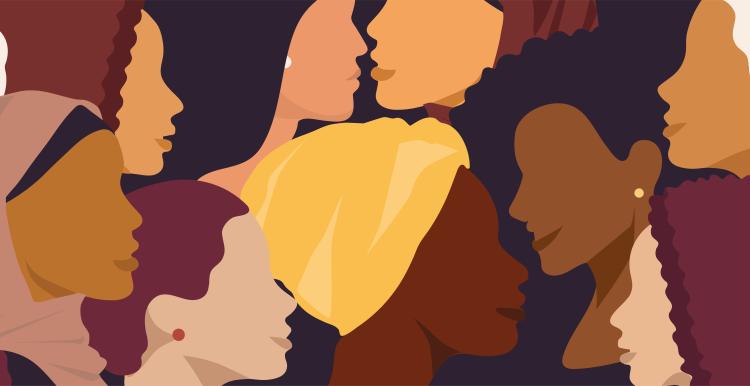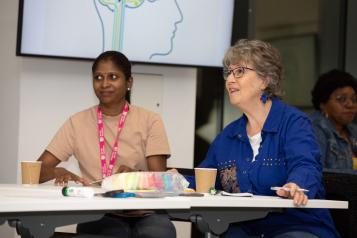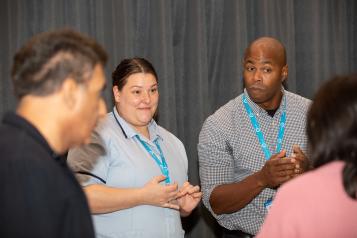Overview of Women's Health in Newham

The London Borough of Newham like all other boroughs experience inequality on a huge scale and therefore it is not immune from the challenges which it faces as a London borough which adds to the complexities of being a very multi-cultural borough. According to the 2021 Census, Newham’s population is 373,400 of which women account for 47% of the population 175,498 which is just under 50% of the entire population (Newham London, 2022).
The overall health of Newham Women in comparison to women in London is low and therefore their life expectancy is compromised as they spend less years in good health than women in London and England. This is because of the widespread deprivation being experienced by them in this borough such as low or no income, overcrowding, fuel poverty, and gender-based violence as compared to men. Their prevalence of some health conditions is greater than that of men in Newham (Newham, 2017).
The census conducted in 2021 revealed that women accounted for 57.5% of the unpaid carer population in Newham which means that over half of the female population falls within the bracket of providing care to individuals most likely family members without any monetary compensation. This shows that once again women continue to be marginalised whether it is consciously or sub-consciously which may have derived from cultural influences and or differences, lack of education, and lack of empowerment to name a few.
Caring itself is a fulltime job which requires patience, understanding, resilience, empathy, care, and love as those who are cared for suffer from multiple health issues including long-term mental or physical conditions. It is a known fact that unpaid carers are usually family members who amid caring for their loved ones, do not have time to care for themselves adequately and therefore this alone impacts on their health and well-being in a negative way. It includes (Heritage Healthcare North East, 2023):
- self-neglect
- lack of physical exercise
- lack of sleep
- difficulty in maintaining a healthy diet
- lack of social interaction with friends
- increased anxiety
- and heightened stress levels to name a few.
These group of women in society seem to be invisible to the wider society and therefore they need to be celebrated as they are strong women with transferable skills that are second to none as they assume the roles of mothers, wives, carers, educators, enablers, and advocates. The burden of care to the local authority and the public purse is phenomenal.
The access to services and their accessibility is improving within the borough such as the Community Assemblies which residents are encouraged to participate in to improve their health and well-being and to feel part of a community. There is also a Womens and Girls Network Hub which supports women experiencing domestic abuse where they receive counseling and advocacy (Newham Families 2020). Newham Nurture is another source of support to pregnant women, moms, and their babies by way of providing drop-in sessions to either prepare them for motherhood and gain their confidence through peer support and counseling.
Here is a list of services in Newham that support women and girls:
- Aanchal Women's Aid
- Carers Community Mental Health Group
- Carers First
- Community Assemblies
- Freedom Programme
- Healtogether CIC
- Hestia
- Jeyes Community Centre
- London Black Women's Project
- Disability Rep Forum
- Maternity Voice Partnerships
- Newham Asian Women's Project
- Newham Nurture
- NIA Ending Violence
- Royal Docks Activity & Learning Centre
- Sphere Support CIC
- Sister Circle (Formerly WHFS)
- The Magpie Project
- TWAN (Tamil Welfare Association Newham)
- Women and Girls Network
Finally, Healthwatch Newham has been commissioned as a health and social care champion within the borough to obtain feedback from residents from all demographics regarding their experiences with health and social care services. This is paramount to identify the strengths and challenges in terms of what is working well, areas for service improvement, and to help local authority inform policy.
Happy International Women's Day 2023!!!
Reference List
- Heritage Healthcare North East (2023). "What impacts unpaid carers in the UK?" Available at: What impacts unpaid carers in the UK? - Heritage Healthcare North East. Accessed: 7 March 2023.
- NCT. Newham Nurture. Available at: Newham Nurture | NCT. Accessed: 9 March 2023.
- Newham Council (2023) Community Assemblies. Available at: https://www.newham.gov.uk/council/community-assemblies. Accessed: 8 March 2023.
- Newham Council (2023) International Women's Day Events 2023. Available at: International Women's Day Events 2023 – Newham Council. Accessed: 8 March 2023.
- Newham Council (2022) Well Newham 50 Steps to a Healthier Borough. Available at: Well Newham – Health and wellbeing in Newham – Newham Council. Accessed: 8 March 2023.
- Newham Council (2022) Women and girls network hub. Available at: Newham Families Advice and Support | Women and Girls Network Hub (West). Accessed: 7 March 2023.
- Newham Council (2022) Newham Facts and Figures. Available at: https://www.newham.info/newham-facts-and-figures/. Accessed: 10 March 2023.
-
Newham Public Health (2016 - 2018). "Mental Health Needs Assessment 2016 -2018". Available at: https://www.newham.gov.uk/health-adult-social-care/public-health-information-reports-strategies-fact-sheets/2. Accessed: 8 March 2023.
-
Newham Council (2016 -2017). "Women and Health in Newham" in Annual Public Health Report 2016-2017. Available at: https://www.newham.gov.uk/health-adult-social-care/public-health-information-reports-strategies-fact-sheets/2. Accessed: 7 March 2023.
-
NHS England. "Care facts: why investing in carers matters". Available at: https://www.england.nhs.uk/commissioning/comm-carers/carer-facts/. Accessed: 9 March 2023.
-
United Kingdom: London (Boroughs and Wards) - Population Statistics, Charts and Map (citypopulation.de). Accessed: 7 March 2023.
UPDATE 14/03/2023: Amended and updated reference list with correct links.
UPDATE 16/03/2023: Additional services updated.


